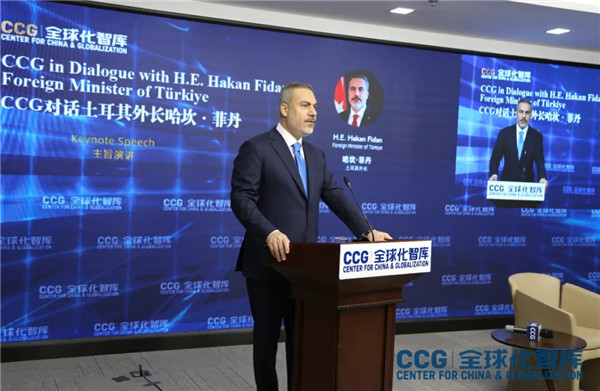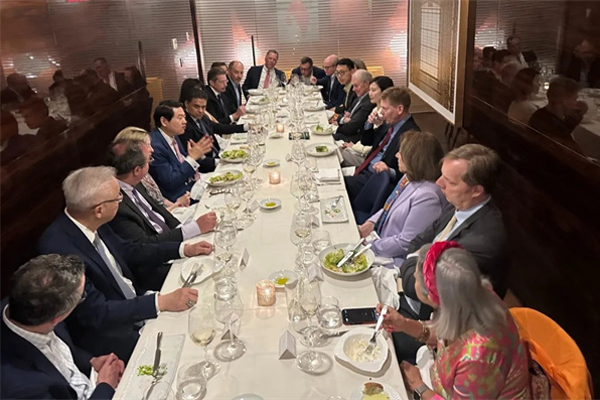CCG visits Germany to promote China-Germany relations
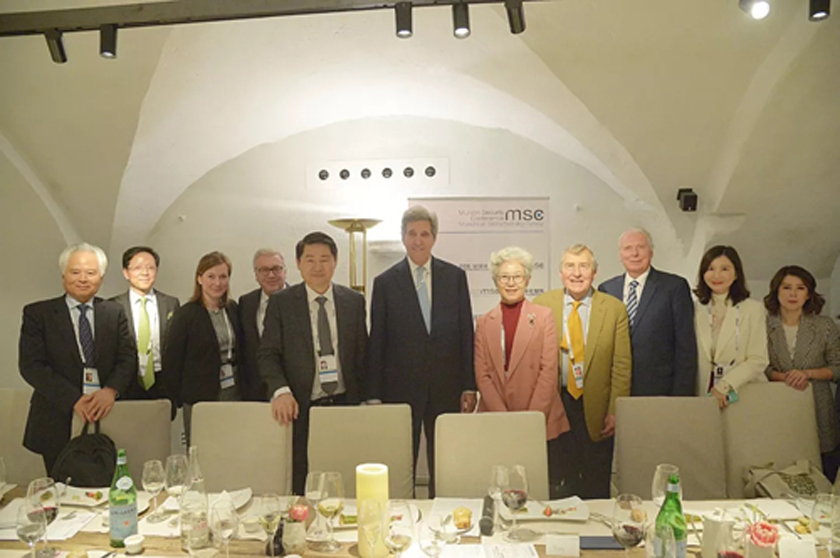
In February 2020, CCG experts went to Berlin, Germany to participate in several exchange seminars as part of Track II dialogues to strengthen China-German relations and cooperation.
During the three-day visit, CCG experts visited the German Institute for International and Security Affairs (SWP) and the Dialogue of Civilizations Research Institute (DOC) in Berlin to conduct exchanges and discussions. In addition, CCG experts had a lunch meeting with Martin Laigko, director of the International Organization for Migration’s Global Migration Data Analysis Center (GMDAC), and Martin Geiger, member of the International Steering Committee of the International Metropolis Project and associate professor of Politics of Human Migration and Mobility at Carleton University, exchanging ideas on future cooperation.
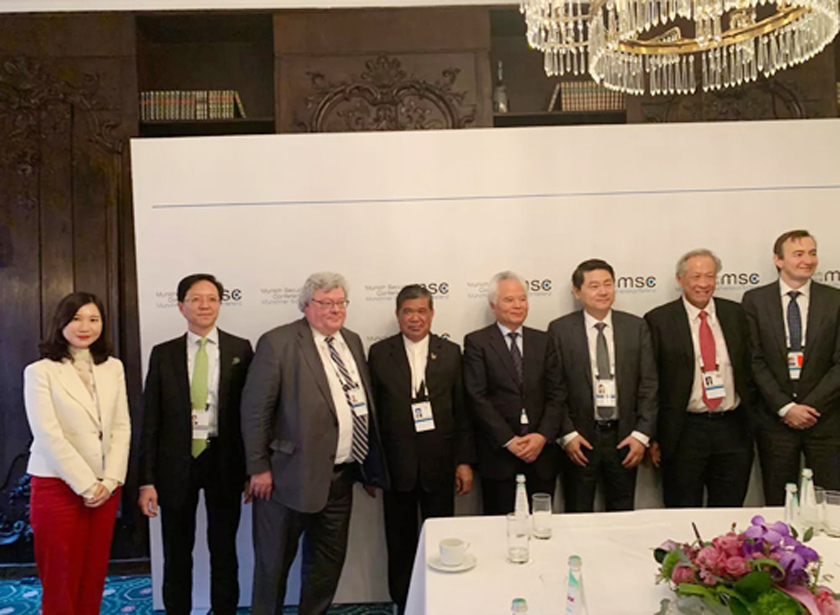
Strengthen China-Germany think tank exchanges and cooperation
During the visit, Wang Huiyao, CCG president, and Mabel Miao, CCG co-founder and secretary-general, visited the German Institute for International and Security Affairs (SWP), one of the largest think tanks in Europe. They also exchanged views on future cooperation between CCG and SWP with SWP Head of Research Division Steffen Angenendt and SWP associate researchers Nadine Biehler, David Kipp and Amrei Meier.
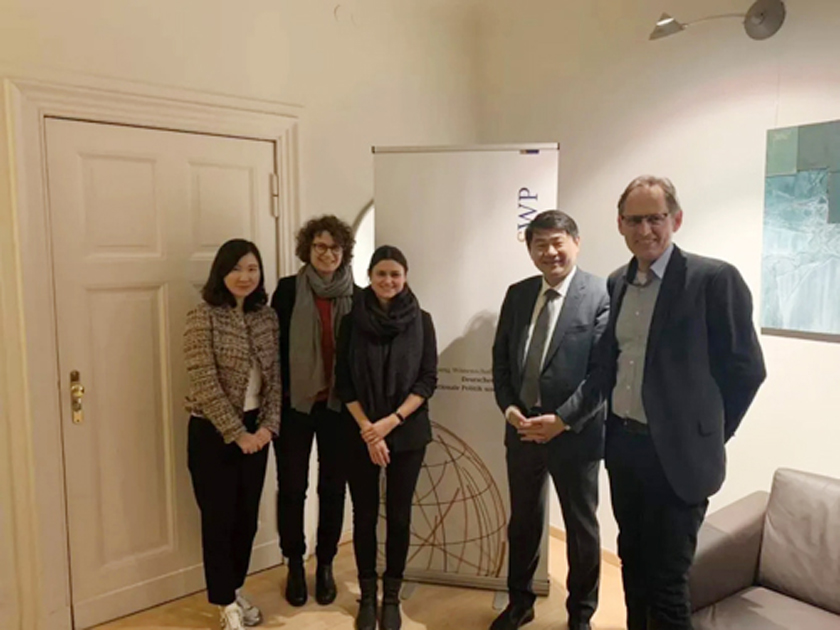
The German Institute for International and Security Affairs (SWP) is an independent research institute that advises the German Bundestag and the German government on questions concerning international politics and foreign and security policy. SWP also advises decision-makers in international organizations relevant to Germany including the European Union, NATO and the United Nations. SWP is one of Europe’s leading think tanks in the field of international relations.
Explore international cooperation and focus on new developments
Wang Huiyao also paid a visit to the Dialogue of Civilizations Research Institute (DOC) in Berlin and discussed future cooperation in research and activities with Jean-Christophe Bas, chief executive officer and chairman of the executive board of DOC, as well as Berthold Kuhn, consultant and head of Research and Policy.
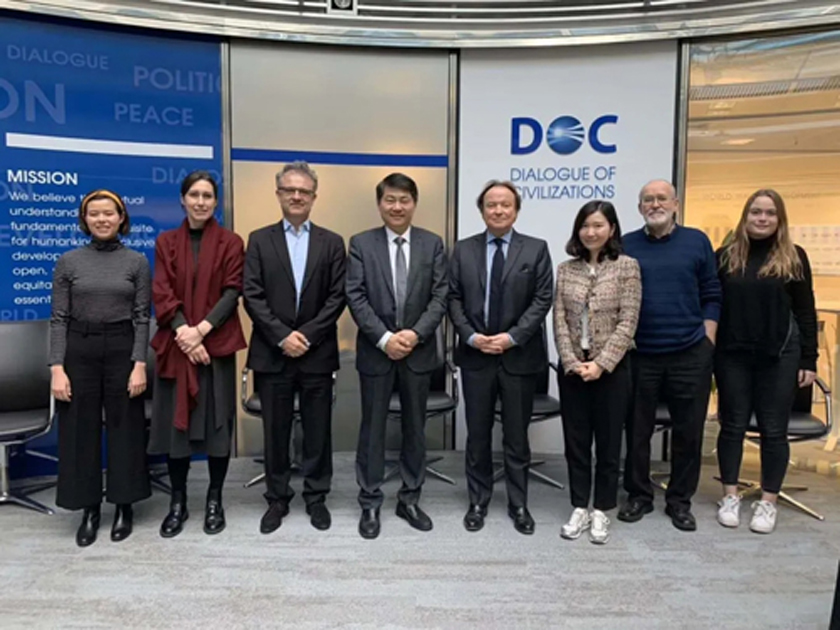
To further explore research cooperation between the two institutions, Wang also held a video conference with Andrey Filippov, executive director of DOC Moscow Office; Richard Higgott, adviser of DOC Brussels Office and professor of Université Libre de Bruxelles; Ekaterina Gerus, chief operating officer of DOC Moscow Office; Vladimir Popov, research director in Economics and Political Sciences of DOC Moscow Office; Behrooz Gharleghi, senior researcher of DOC Moscow Office; Heather Brown, associate researcher of DOC Moscow Office, and Ekaterina Jarkov, research assistant of DOC Moscow Office.
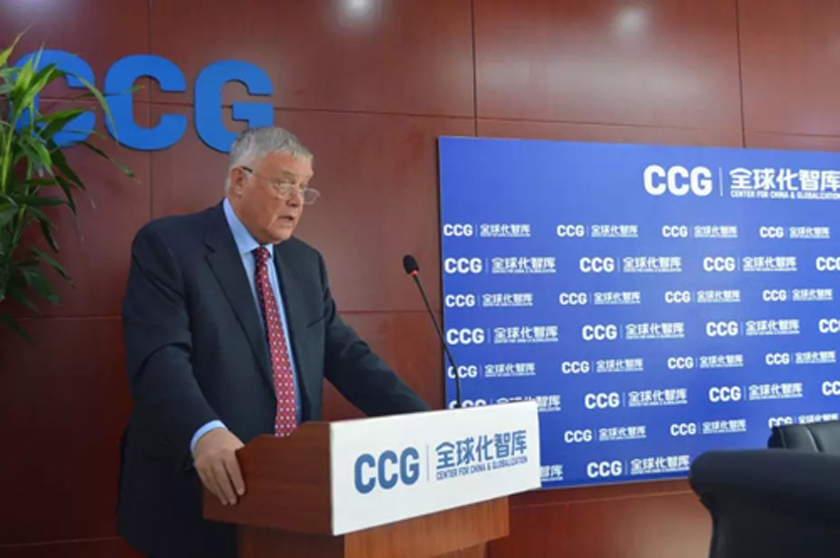
CCG maintains a close relationship with DOC. Vladimir Yakunin, chairman of the DOC Supervisory Board, visited CCG’s Beijing headquarters and spoke on the civilizational dimension of the international order, opportunities in Asia and Europe under the Belt and Road Initiative, and nuclear stability in the new world order, having in-depth exchanges with participants at the event.
Global talent governance and building international exchange platforms

Wang Huiyao and Mabel Miao also participated in a lunch meeting with Frank Laczko, director of the International Organization for Migration’s Global Migration Data Analysis Center (GMDAC) and Martin Geiger, member of the International Steering Committee of the International Metropolis Project, associate professor of Politics of Human Migration and Mobility at Carleton University. They exchanged views on future cooperation between CCG and GMDAC in research and activities on talent mobility. Wang was then interviewed by GMDAC, sharing his opinions on the topic of global talent mobility.
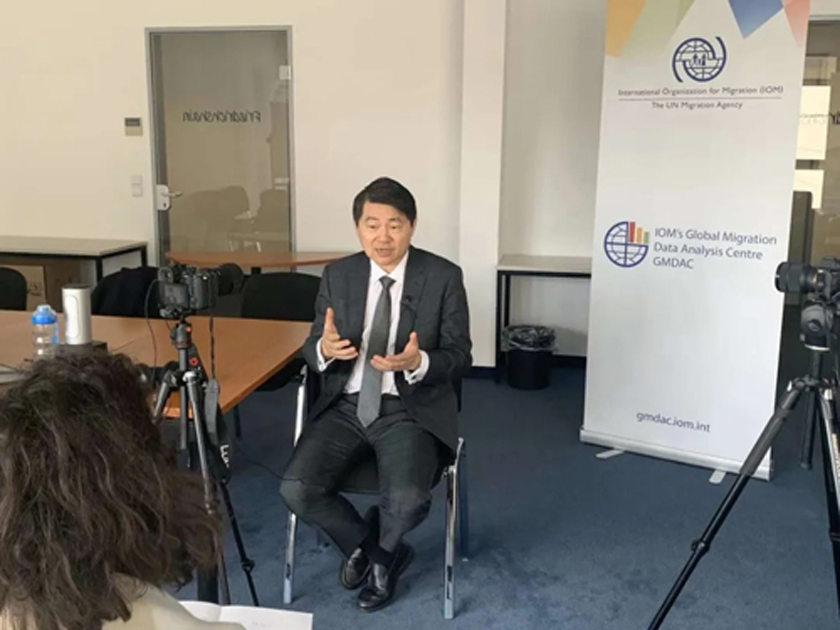
The experts also discussed the possibility of co-hosting the International Forum on Migration Statistics (IFMS) in Beijing in the future. In January, CCG researcher Chen Xiaoxiao took part in the International Forum on Migration Statistics (IFMS) in Egypt, jointly organized by the International Organization for Migration, the Organization for Economic Co-operation and Development (OECD) and UN Department of Economic and Social Affairs (UNDESA).
Previously, Frank Laczko and Martin Geiger participated in the sub-session “Brain Drain: Making Better Use of the World’s Talent”, organized by CCG at the 2019 Paris Peace Forum, discussing the Global Talent Organization Alliance and global talent governance. This helped with preparations for the Global Talent Organization Alliance and attracted the participation of the international community.
As China’s leading non-governmental think tank, CCG focuses on research of globalization, global governance, and international relations. In addition to organizing round-table seminars, CCG also hosts high-profile forums and seminars overseas as part of Track II diplomacy.
At the just-concluded 56th Munich Security Conference (MSC), CCG, as the only Chinese non-governmental partner, hosted two side events—a theme dinner with MSC and a roundtable seminar with the NATO Centre of Excellence for Operations in Confined and Shallow Waters (COE CSW), sharing views and insights from the Chinese think tank community to boost global security governance and promote economic globalization.

